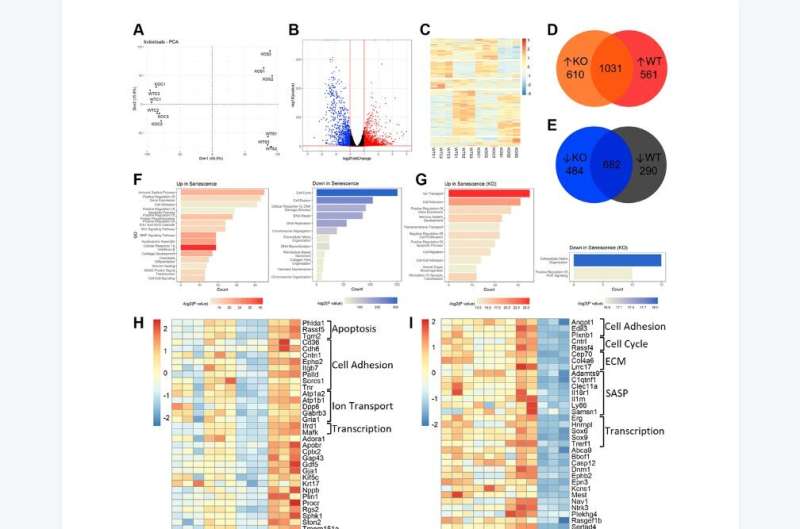This article has been reviewed according to Science X's editorial process and policies. Editors have highlighted the following attributes while ensuring the content's credibility:
fact-checked
proofread
Study: BMAL1 modulates senescence programming via AP-1

A new research paper titled "BMAL1 modulates senescence programming via AP-1" has been published in Aging.
Cellular senescence and circadian dysregulation are biological hallmarks of aging. Whether they are coordinately regulated has not been thoroughly studied. In this new study, researchers Sarah K. Jachim, Jian Zhong, Tamas Ordog, Jeong-Heon Lee, Aditya V. Bhagwate, Nagaswaroop Kengunte Nagaraj, Jennifer J. Westendorf, João F. Passos, Aleksey V. Matveyenko, and Nathan K. LeBrasseur from the Mayo Clinic in Rochester, Minnesota, hypothesized that BMAL1, a pioneer transcription factor and master regulator of the molecular circadian clock, plays a role in the senescence program.
The researchers write, "Here, we demonstrate BMAL1 is significantly upregulated in senescent cells and has altered rhythmicity compared to non-senescent cells."
Through BMAL1-ChIP-seq, they showed that BMAL1 is uniquely localized to genomic motifs associated with AP-1 in senescent cells. Integration of BMAL1-ChIP-seq data with RNA-seq data revealed that BMAL1 presence at AP-1 motifs is associated with active transcription. Finally, the researchers showed that BMAL1 contributes to AP-1 transcriptional control of key features of the senescence program, including altered regulation of cell survival pathways, and confers resistance to drug-induced apoptosis.
"Overall, these results highlight a previously unappreciated role of the core circadian clock component BMAL1 on the molecular phenotype of senescent cells," conclude the researchers.
More information: Sarah K. Jachim et al, BMAL1 modulates senescence programming via AP-1, Aging (2023). DOI: 10.18632/aging.205112



















